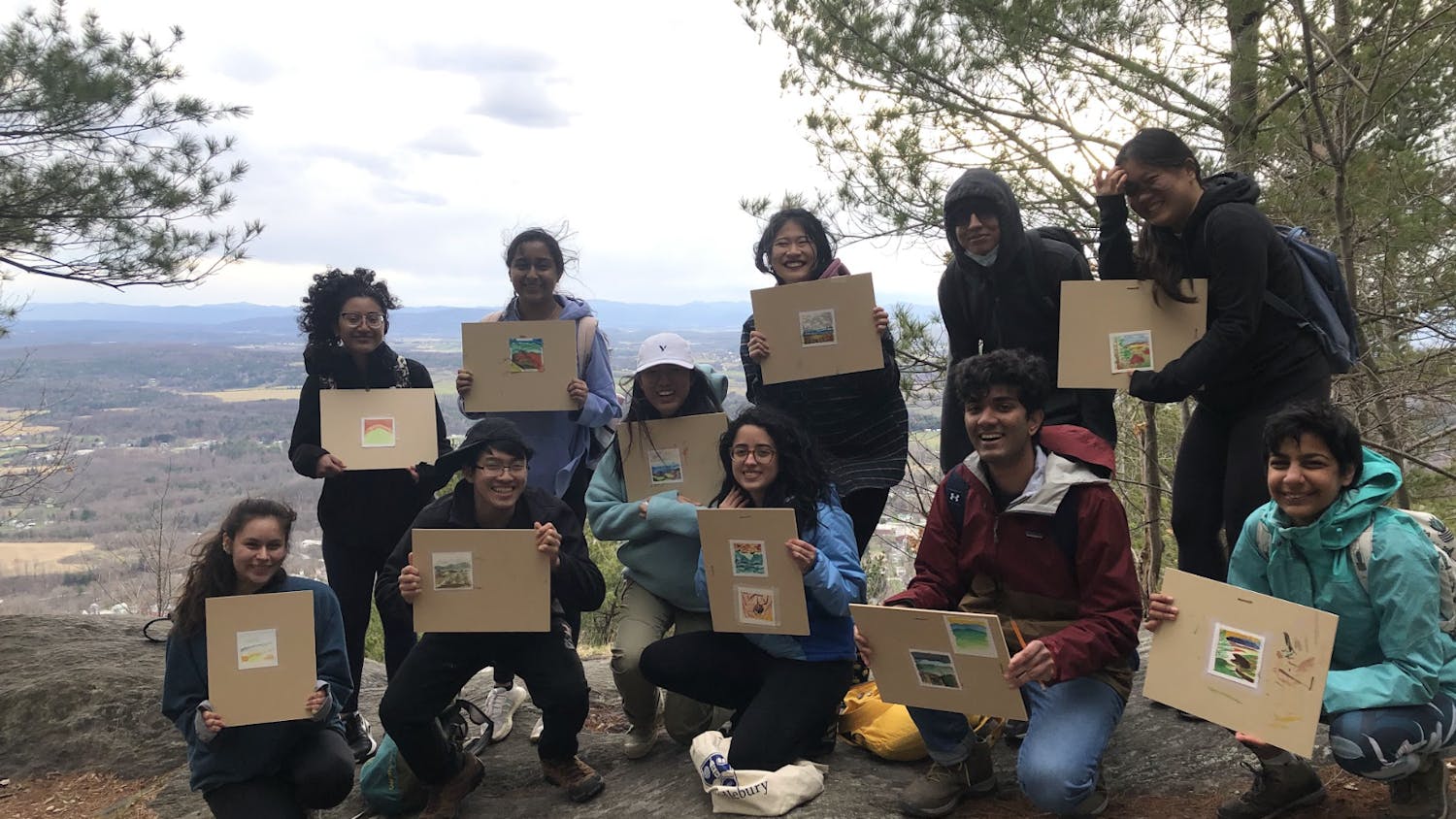Wednesday night, the Ilsley Public Library hosted a talk by Dan Kittredge, founder and director of the Real Food Campaign. The presentation, which was open to the public, was co-sponsored by the Addison County Relocalization Network (ACoRN) and the Middlebury National Foods Co-op.
Kittredge’s talk focused on Nutrient Dense Crop Production, a new type of biological farming that seeks to balance the minerals in the soil. This, in turn, yields a larger quantity of healthy crops that endure longer seasons and shelf lives, and are immune to disease, insects and weeds. Doug Williams, the course administrator for the campaign who organizes many similar events, attributes this effect to the fact that insects do not enjoy the taste of the healthier plants, as the critters prefer wheat plants.
The presentation, which was geared towards farmers, gardeners and food savants, was part of the Real Food Campaign’s effort to increase awareness about the new form of farming. Kittredge is offering several courses to spread such information. The classes, which meet for a total of five days between the months of December and August, are now offered in eight different locations. In addition to sites in New York, Connecticut and Massachusetts, Vermont also has two spots, one at Shelburne Farms and the other at The Mountain School in Vershire. For specific dates, visit the campaign’s website, www.realfoodcampaign.org, as this is also where individuals can register for the $300 course, which includes monthly newsletters and a private analysis of each participants’ soil.
“Growing more nutrient-dense food is incredibly important because at present the food that we are eating, even organic food sometimes, does not have the minerals that we need for our bodies to function effectively and for our minds to think efficiently,” said Williams, who lives in Peterborough, NH.
Kittredge began the program about three years ago, but this type of farming has enjoyed success in the Midwest for several years. He said he formed the organization because he yearned for a more potent strategy to re-mineralize soil. His team of five fellow employees, including Williams, a website manager, a communications director, a database coordinator and a general organizer, is excited for the campaign to grow.
“The goal behind these courses is to help growers achieve as much success as possible,” said Kittredge. “You just need a desire to improve. The underlying nutrients in our food are lower than they were 70 years ago and we need to get back to where they were and surpass that.”
The first step in producing nutrient dense crops is for farmers to test their own soil and to measure its levels of calcium and phosphorous. Once farmers have analyzed their soil, they must add the necessary amendments to create a balanced mix of minerals. There are two ways to add the mixture. The first is through nutrient trenches, which are added to the soil with hopes that they will reach the roots. This mixture includes water and a balanced proportion of minerals. The second way is to concoct a spray to cover the crops’ leaves with, as this also enhances the quality of the plant.
“We are aiming to improve the carbohydrate and sugar levels in plants,” said Williams. “Increased sugar levels lead to better flavor and longer lasting and better quality plants that taste better and are more nourishing.”
Williams supports the current movement for local food, but knows it must be coupled with a movement for local healthy food, that is “fed the elements that we need.”
Farmers are encouraged to start small and to do as much as they can afford, as one bag of amendments (which covers roughly 1,000 square feet) costs $30. By adding amendments overtime, the soil will build up its mineral content. Williams said that each time crops are harvested, they take minerals out the soil, and most of the time, these essential nutrients are not replaced. Jonathan Corcoran, one of the founders of ACoRN, said the cost of the production may deter growers from getting involved, but Williams believes the practice is actually an investment.
“Bigger and better crops with an extended growing season that are less conditioned to blight results in plants that are healthier and taste better,” said Williams. “As a result, farmers can sell their crops for better prices in the marketplace, so they get their money back. The food supply also increases, so there is more for people to buy and eat.”
For all the benefits and nutritive values of the food being grown, the campaign is an underfunded organization in a constant search for support. People can become members of the campaign for $50 a year, or can pay an additional $100 and receive tools to help facilitate the farming. The campaign seeks to find companies and sponsors that see value in Nutrient Crop Density Production, and hopes to receive grants in the future.
“All crops, across the board, including veggie and fruit tress, can benefit,” said Williams. “This type of farming develops the soil, and creates a relationship between plants and the soil.”
The Vermont Student Assistance Corporation has approved Kittredge’s course, and all interested students can apply for the grant. If they receive it, the corporation will pay for their course tuition.
“Human bodies need a broader and more complete spectrum of nutrition than what is available, so we can thrive,” said Kittredge. “There is a physical, mental, emotional and spiritual benefit to these crops.”
Corcoran, who firmly supports the Real Food Campaign’s cause, considers Kittredge a pioneer in the field who is taking the initiative to publicize his production technique. He also believes Kittredge is increasing growers’ awareness about the need for healthy food.
“Agriculture is production-driven and it is interesting that Dan is bringing the issue of nutrition down to the grower level,” said Corcoran. “It is a win-win proposition. Who would be against increasing nutrition in food?”
Addison County is the leading agriculture county in Vermont, and Corcoran sees Kittredge’s campaign as an opportunity for expansion. He knows the county has the potential to develop better food production and distribution practices, and Kittredge’s direct link between nutrition and farming practices is key.
Many growers have already seen results in their crops. According to Williams, Saratoga Apples in Schuylerville, NY had better quality apples this fall. He added that owner Nate Darrow, received much positive feedback from customers. Others, like Derik Christianson, owner of Brix Bounty Farm in Dartmouth, Mass., feel the same. He started focusing on Nutrient Density Crop Production three years ago and is beginning to see results.
“We felt like we were not at the pinnacle of where we wanted to be with crop quality and production,” said Christianson, which is why the farm decided to mineralize and re-inoculate its soil.
Christianson also said that certain crops, like arugula, salad greens and mustard greens, have enjoyed the most success. Customers say the greens have a “stronger and more pronounced” flavor. The farm is specifically “trying to catch the palettes of younger people” because Christianson believes healthy soil yields healthy crops and kids will have an easier time eating their vegetables if they taste good. He has also noticed increased quality and quantity in fruiting crops, like tomatoes, cucumbers and squash.
“This is a promising development for local production,” he said.
Campaign promotes nutrient dense crops
Comments



